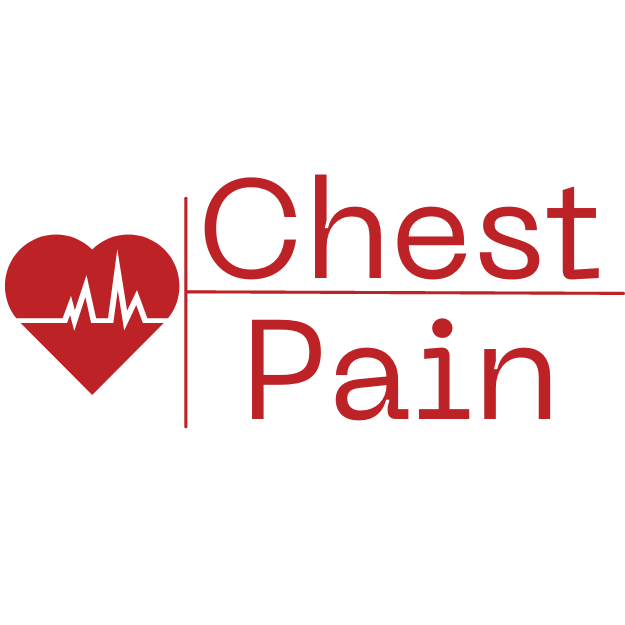However, chest tightness after exercise can be because of an individual’s medical conditions, such as if an individual is diagnosed with asthma. Asthma can affect an individual’s airways in the lungs that get tightened when performing workouts such as the EIB. Individuals with a family background of asthma have greater chances of asthma and are more likely to experience chest tightness, wheezing sound when breathing in, shortness of breath, and coughing.
My chest hurts after working out.
Chest pain after a workout is typical because maybe an individual has pushed themselves too hard while performing exercises like cardio. However, if the chest pain remains for a more extended period, then it is advised to seek immediate medical help. Workouts like cardio place heavy requirements on the heart and lungs. An individual’s heart requires to perform more challenges to transport oxygen and blood throughout an individual’s anatomy to thAn individual can never ignore chest pain in any case. If the pain is unexplained and gets severe with daily activities, it is advised to see the health care advisor immediately because there are chances of cardiovascular issues. Similarly, some individuals experience chest pain typically because of acid reflux, also referred to as Gastroesophageal reflux disease (GERD). Because of muscle strain, individuals are likely to experience chest pain, which is typical.
Typical symptoms of chest pain are:
Symptoms of chest pain can be sharp, mild, dull, and severe. Moreover, an individual’s symptoms can vary depending on the reason for chest pain. Individuals who experience chest pain after a workout can be due to any damage or pinched nerve that can happen because of heavy exercise or repetitive motions. The damage from a pinched nerve can be both minor and severe. It can be temporary and long-lasting.
Causes of chest pain after a workout
Athletes are more likely to experience chest pain because of their daily activities. Athletes such as football players, boxers, and lacrosse players are most likely to experience hard hits that can lead to fractures or bruises in their ribs, resulting in intense chest pain.
Furthermore, with constant repetitive movement during strenuous workouts, individuals can experience costochondritis, an inflammation of the cartilage that joins the ribs with the breastbone. This costochondritis is usually found in tennis players, rowers, athletes, and weightlifters.
Some athletes also encounter Tietze’s syndrome, an inflammatory illness that affects the chest wall cartilage of an individual, because of which an individual can also encounter stitches. Individuals can also experience precordial catch syndrome, a pain that attacks all through deep breathing.
Delayed chest pain after exercise
Individuals can experience delayed chest pain after exercise because as the chest pain increases instantly after a workout, it can lead to the spam of the lung’s tiny airways, known as EIB exercise-induced bronchospasm. An EIB can lead to difficulty in breathing and sharp chest pain. This pain can get worse depending upon the environment.
Chest tightness after exercise.
Chest pain can also occur after having an intense workout muscles that need it. An individual’s lungs must make sufficient oxygen for the blood to circulate. If this process is disturbed during a workout, an individual will likely experience chest pain.
Chest pain after a chest workout.
Individuals after chest exercises can experience chest pain primarily due to heavy chest presses or push-ups. Chest workouts can result in musculoskeletal pain and muscles pulled near the chest area. The suggested treatment for such pain can be rest and medication for muscle strain. For the reduction of inflammation, an individual can apply ice packs.
Chest pain after lifting weights.
Lifting heavy weights during a workout can direct strain and inflammation in an individual’s muscles, and the joined tissues can result from chest pain. Moreover, any chest pain which requires medical guidance should be dealt with appropriately.
My heart hurts after exercise.
If an individual’s heart hurts after a workout, it can be because of heavy exercises like cardio, push-ups, and weight lifting. All these workouts can damage the nerve of an individual’s heart, damaging the healthy blood flow and causing chest pain. Muscle strain can also be a reason for heart pain that is generated while performing a workout.
REFERENCES:
- https://www.livestrong.com/article/406588-can-you-get-chest-pain-from-lifting-weights/ Retrieved on 28 July 2022
- https://www.thehealthy.com/exercise/exercise-related-chest-pain-besides-heart-attack/ Retrieved on 28 July 2022
- https://www.webmd.com/pain-management/guide/whats-causing-my-chest-pain Retrieved on 28 July 2022
- https://www.livestrong.com/article/438374-chest-hurts-after-cardio/ Retrieved on 28 July 2022
- https://www.medicalnewstoday.com/articles/323497#causes Retrieved on 28 July 2022
- https://health.clevelandclinic.org/chest-pain-in-young-athletes-when-you-should-be-concerned/#:~:text=Called%20exercise%2Dinduced%20bronchospasm%20(EIB,root%20of%20your%20chest%20pain. Retrieved on 28 July 2022
- https://share.baptisthealth.com/chest-pain-and-exercise/ Retrieved on 28 July 2022
